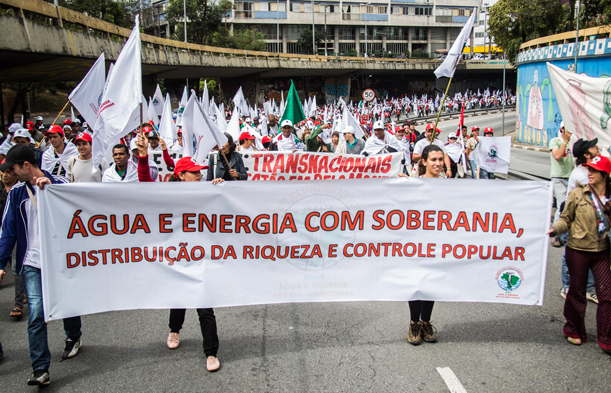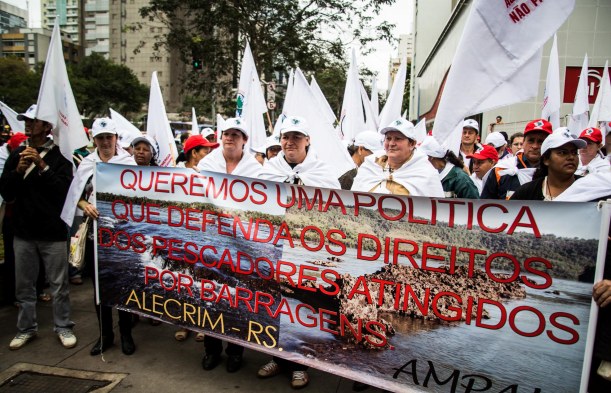4,000 march against privatization at Avenida Paulista
About 4,000 people from the Movement of People Affected by Dams (MAB), MST, the Federation of Oil Workers (FUP) and the Levante Popular da Juventude marched on Thursday (5th September) […]
Publicado 06/09/2013
About 4,000 people from the Movement of People Affected by Dams (MAB), MST, the Federation of Oil Workers (FUP) and the Levante Popular da Juventude marched on Thursday (5th September) by Avenida Paulista, in São Paulo.

The protesters demanded the cancellation of auction of oil – scheduled for October – against the auctioning of hydropower and a national politic of rights to the people affected by dams.
“We fight for energy sovereignty over oil and hydropower, as are the large transnational corporations who control the energy in our country,” said Gilberto Cervinski, national coordination of the Movement of People Affected by Dams (MAB).
Twelve big hydropowers will return to Union control, after the state government of São Paulo, Minas Gerais, Paraná and Santa Catarina had declined to renew the concession of these companies. These dams produce 12% of energy in the country. With privatization, this potential energy will be transferred to the private sector. “We will not accept the privatization of these dams. This is a fight for all Brazilian people,” said Cervinski
The leader of MAB foresees about 250,000 people affected by the plants to be built in the coming years, but none of them have their rights guaranteed, as there is no national policy for the sector.
The oil shall be ours
Throughout the march, protesters stopped in front of the building of Petrobrás as a symbolic act to press the end of the auction of the pre-salt areas.
To João Antônio de Moraes, from FUP, this wealth is a natural that belongs to society and the resources generated from its operation must be fully geared to Brazilians. So he condemns the delivery of oil to large companies.
“Is estimated an auction of R$ 15 billion of oil reserves. They are delivering the future of Brazilian people for the global corporations” said the syndicalist, who considers the privatization of Brazilian oil a crime.

To Moraes, Petrobras is able to explore the areas of pre-salt, for it is the largest Brazilian company and the fourth largest energy company in the world.
“While people took to the streets calling for more State (recalling the demonstrations of June), the auction means less government, weakening the national economy, not leveraging the country’s development and worsening conditions for workers” he says.
According to FUP data, the value given to companies that aim to explore oil should amount 280 years of the health budget, 800 years of the education budget and 260 million affordable housing.
At the end of the act, social movements and trade unions delivered a letter addressed to President Dilma Rousseff with claims, at the building of the General Secretariat of the Presidency.

